Ask any master gardener, what is the most important factor to consider when starting a garden, and they will tell you. Garden soil composition is as important to healthy garden plants, as proper moisture or nutrients. As for Newbie gardeners, understand there are two basic layers of garden soil to take into consideration that are extremely important. First, there is the top soil layer. Secondly, there is the equally important subsoil layer. The thing gardeners as you and me need to understand, good top, and subsoil each have their role in ensuring the health and productivity of garden plants.

Things flower and vegetable gardeners need to know about garden soil
by teddletonmr
Before April showers can bring May flowers, garden plants require proper soil PH and composition discussed here
Good top soil starts with proper PH levels
Gardeners need to know it their garden soil is alkaline, acidic or neutral
In the beginning I believe it fair to say every newbie gardener struggles with their inspiration, and limited gardening know how. Often much too busy to bother with testing garden soil PH levels, and soil composition in what we believe to be the perfect location for our garden beds. We simply find ourselves more concerned with getting our first plantings in the ground. That is of course until we learn the hard way when all our carefully selected flower and vegetable plants wither and die due to poor soil conditions.
Things we did not know then, or think important. Before our vegetable, annual and flowering perennial plants require to remain healthy, and produce a bountiful harvest. We should have at a minimum of six-inches of good organic rich granular topsoil in our gardens, raised beds and container garden. Made-up of good organic materials, the proper amounts of minerals, nutrients, earthworms and other beneficial microorganisms.
Why earthworms, and other beneficial microorganisms you ask? Look at it this way, earthworms and microorganisms convert’s organic matter into nutrient rich plant food flower and vegetable plants can readily absorb.
What is good Subsoil?
Good subsoil starts with more of a granular composition. This makes it easier for our plants to develop a strong root system. I believe we all understand how important a good root structure is for providing life sustaining water and nutrients critical for plant development.
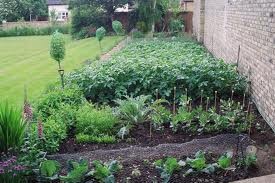 vegetable garden |
Lesson compaction problems, granular subsoil’s make the retention of beneficial moisture, while allowing excess water to easily drain away, so as not to drown our garden plants.
Non-compacted garden soil also makes it much easier for the oxygen rich air to reach a plants root structure. Oxygen is vital for healthy plant growth, there by production of nutritious fruits and vegetables.
Furthermore, these types of non-compacted subsoil layers at least one foot deep. Not only make it easy for excess water to drain from the soil in wet weather. Granular soil allows excess carbon dioxide that develops during the decomposition of organic materials in the soil, escape back into the atmosphere. This is extremely important to maintaining healthy garden plants. As well as all the other beneficial earthworms, nematodes, and other good organisms that resides in well-drained oxygen rich subsoil.
Garden soil PH tester
 |
| Luster Leaf 1662 Professional Soil Test Kit with 40 Tests Only $23.9 |
Good organic garden material
Good organic materials commonly used to amend our garden soil includes such things as; horse, cow & chicken manure, tree leaves and small twigs, wood chips, sawdust, grass clippings, weeds, Pete moss, vegetable and fruit peals, fish emulsion and bone meal are all good organics.
These organic materials contain many of the nutrients plants need to grow. However, before plants will benefit from these organics. Earthworms and other microorganisms living in the soil must first consume them and break them down into worm castings.
Our gardening friends, the earthworm in their castings convert the nutrients locked in the organic materials, into the nutrient rich plant food our vegetable and flowering plants can easily absorb. Combined with the proper amounts of moisture, and sun light, our gardens reward us with a bountiful harvest of fruits, vegetables. Let us not forget, our favorite flowering annuals and perennial plants we enjoy.
The important thing to keep in mind, good organic materials is in fact, Mother Nature’s way of recycling plant and animal products and remains. Organics mixed into heavy clay soils, lesson compaction improving soil aeration there by maintaining healthy oxygen levels in garden soils.
Pete moss mixed into sandy soils will help increase moisture retention, and lessen the need for frequent fertilization to replace nutrients carried away with rainwater or irrigation runoff.
Equally important, gardeners should keep in mind organic materials are perishable. Consumed by the microorganisms and earthworms that live in the soil, or combine with oxygen in the air to form carbon dioxide make it necessary as newbie or master gardeners, we really need to replenish the organics in the soil each planting season. On the other hand, the microorganisms and earthworms will either die, or relocate to greener pastures.
Earthworm castings
 |
| Earthbounsoilenhancer Worm Castings 15 Lbs |
What not to compost
Whatever you do, absolutely do not use dog, cat or human feces in your compost. It is possible; feces from these critters will contain harmful parasites. Another thing newbie and master gardeners should keep in mind. Meats, animal fats, chicken, steak and pork bones or dead animals, these materials will attract wild animals or scavengers such as raccoons, rats, possums, stray dogs and feral cats. These kinds of organic material smell bad and do take a lot of time to decompose in a compost bin, heap or tumbler.
What is Humus?
Humus is what remains of organic material after it has completely decomposed, generally a deep dark almost black color that has a granular texture. When compared to the original consistency of the organic material.
Humus is compost that has passed through a screen sifting out larger bits, resulting in finer particles of compost. Rich in nutrients beneficial to not only our garden plants, humus also serves to keep the microorganisms and earthworms in our vegetable garden happy and healthy. Subsequently breaking the composted organics, otherwise known as humus, down into the nutrient rich plant food vegetable and flowering plants can easily absorb.
Composting not your thing, no worries look for humus in your local gardening center or landscape nursery.
What is Pete Moss?
Pete moss consists of decomposed plant matter, an important soil amendment when growing plants in containers and sandy soils. For that reason, Pete moss is a good soil conditioner or amendment if you like. However, Pete moss contains no nutritional benefit to our flowering, fruit bearing or vegetable plants for that matter. What it does is to absorb up to sixteen times its own weight in water helping with water retention when mixed into the soil.
Pete moss dries out quickly therefore should be mixed into the soil where it will help to retain moisture, and not simply spread over the top of the soil in the container where it will absorb like a sponge, moisture from the soil and allow it to evaporate back into the air.
Something we all need to remember, when using Canadian sphagnum Pete moss, or domestic sedge Pete moss, both are acidic making it necessary for newbie and master gardeners test the garden soil PH levels a little more often to ensure good growing conditions keep their plants happy, healthy and productive.
Organic Pete Moss
 |  |
| Espoma PTM8 8-Quart Organic Peat Moss | Hoffman 15503 Canadian Sphagnum Peat ... |
Summary
Tips & Tricks every Newbie and Master Gardener should know about garden soil reveal the importance of understanding how well drained soil, proper moisture retention, organic materials, earthworms, and the best soil amendments. All work together to make the best garden soil possible. That provides good nutrient and oxygen rich garden soil our plants will love.
Happy gardening, Mike
Garden tiller reviews
garden tiller
Lawn care Tips
You might also like
Revamping the AllotmentNo garden design is for ever, and this year I am having to make some changes ...
Dark Gold: Garden CompostCompost is a wonderful addition to a garden, but there is a variety of types ...
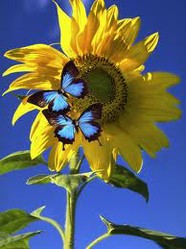






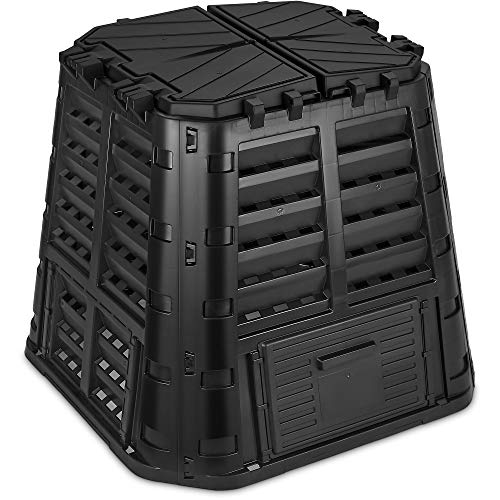




 Apple Watch the Best Talking Watch Bargainon 01/16/2023
Apple Watch the Best Talking Watch Bargainon 01/16/2023
 In-depth review of a Bushcraft Backpacking Survival hatcheton 12/05/2014
In-depth review of a Bushcraft Backpacking Survival hatcheton 12/05/2014
 Winterizing windows – Easy and inexpensive DIY projecton 11/17/2014
Winterizing windows – Easy and inexpensive DIY projecton 11/17/2014
 Growing cucumbers on a trellis is fun and easyon 08/05/2014
Growing cucumbers on a trellis is fun and easyon 08/05/2014

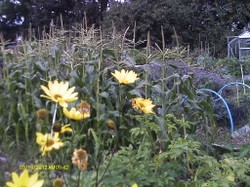
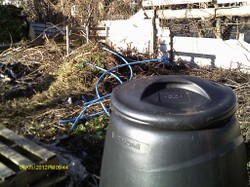
Comments
@Pinkchic18 great to hear from you. Composting takes a little time and effort but, it makes our gardens grow. Make sure to check the ph levels in your garden soil after mixing your organic rich compost and soil.
Many times adding a good organic compost will rase the acidity levels in the garden soil to below 6.5. Tomatoes, green leafy vegetables and bell peppers will not like high acidity or low PH levels like blueberries and blackberries.
Enjoy much gardening success, Mike
Awesome article! We have composted for the past year and are looking forward to using it in our garden this year. Cheers!
Thanks @katiem2 for your kind comments on my organic gardening tips., glad to hear you both enjoyed reading and learning something you could use in your garden.
Happy gardening, Mike
Just came back to refresh my memory on what I learned here before, thanks for the useful tips as I find myself here again your the go to garden guru. I appreciate you extensive facts and attention to detail. Its in the little details so many people leave out. :) Happy Gardening
Thanks Katie, gardening is something everyone can enjoy, from the large backyard vegetable garden, to the small container garden in a window. Gardening is a lot of fun, and learning.
Teaching someone how to garden is I believe akin to teaching them how to fish.:)
Be well, Mike
Great tips on prepping gardening soil. Its that time of year again and there has never been a greater need to grow your own healthy and organic fruits and vegetables. You never know what you might learn from you Mike, I learn something every time I read your work. Thanks for the great gardening tips, I'm excited to get planting!